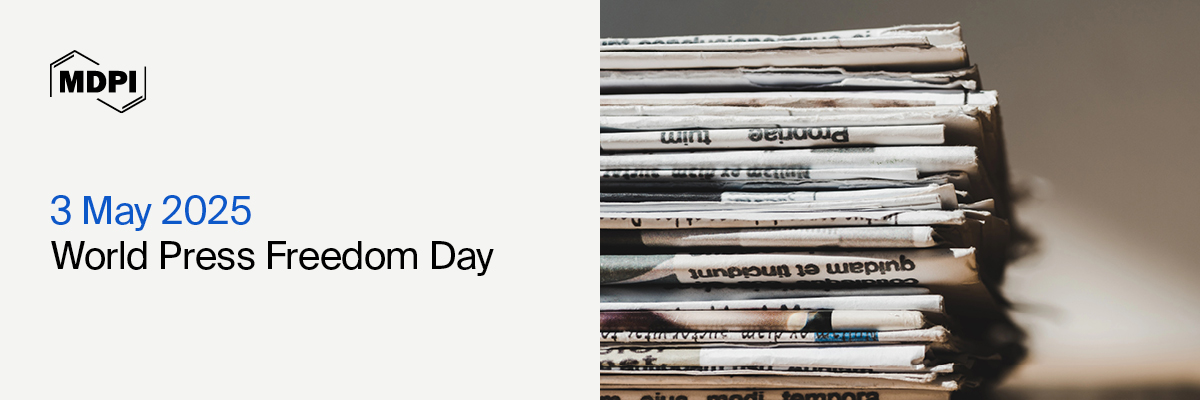
World Press Freedom Day—“Freedom of Expression in the Face of the AI Revolution”, 3 May 2025
World Press Freedom Day, observed annually on 3 May, highlights the critical role of press freedom in ensuring the free flow of information and safeguarding democracy. Proclaimed by the United Nations General Assembly in 1993, this day serves as a reminder of the fundamental principles of free and independent media and their importance in promoting transparency, accountability, and human rights. It also marks the anniversary of the 1991 Windhoek Declaration, which affirmed the necessity of a free and pluralistic media landscape.
In today’s rapidly evolving digital world, the rise of Artificial Intelligence (AI) has introduced both unprecedented opportunities and significant challenges to press freedom. AI has the potential to enhance global communication, increase access to information, and support more efficient journalism. However, it also brings new risks—misinformation, censorship, online hate speech, and surveillance—threatening the integrity of independent media and freedom of expression.
On World Press Freedom Day 2025, we will focus on AI’s impact on the media, exploring its effects on press independence, the quality of information, and the future of journalism. As we reflect on the state of press freedom worldwide, we invite you to explore resources that examine the intersection of technology, media, and democracy. Through thoughtful discussion and collaboration, we can work toward a future in which media remains free, diverse, and capable of serving the public good in the face of evolving challenges.
|
|
||
|
|
|
|
|
|
||
“Public Figures and Social Media from a Freedom of Expression Viewpoint in the Recent U.S. and EU Jurisdiction”
by Gergely Gosztonyi, János Bálint and Gergely Ferenc Lendvai
Journal. Media 2025, 6(1), 26; https://doi.org/10.3390/journalmedia6010026
“What Journalism Feels Like: Considering the Body of the Journalist”
by Mark Deuze and Laura Glitsos
Journal. Media 2024, 5(4), 1851-1865; https://doi.org/10.3390/journalmedia5040112
“Adapting the Competition Policy for the Digital Age: Assessing the EU’s Approach”
by Gentjan Skara, Oriona Muçollari and Bojana Hajdini
Laws 2024, 13(5), 64; https://doi.org/10.3390/laws13050064
“Public Service Media and Platformization: What Role Does EU Regulation Play?”
by Marius Dragomir, Marta Rodriguez Castro and Minna Aslama Horowitz
Journal. Media 2024, 5(3), 1378-1394; https://doi.org/10.3390/journalmedia5030087
“How Generative AI Is Transforming Journalism: Development, Applications and Ethics”
by Yi Shi and Lin Sun
Journal. Media 2024, 5(2), 582-594; https://doi.org/10.3390/journalmedia5020039
“The Impact of Affect on the Perception of Fake News on Social Media: A Systematic Review”
by Rana Ali Adeeb and Mahdi Mirhoseini
Soc. Sci. 2023, 12(12), 674; https://doi.org/10.3390/socsci12120674
“The Struggle for News Value in the Digital Era”
by Tony Harcup
Journal. Media 2023, 4(3), 902-917; https://doi.org/10.3390/journalmedia4030058
“Artificial Intelligence in Automated Detection of Disinformation: A Thematic Analysis”
by Fátima C. Carrilho Santos
Journal. Media 2023, 4(2), 679-687; https://doi.org/10.3390/journalmedia4020043
“Disinformation and Sexual and Gender Diversity in Spain: Twitter Users’ Response, and the Perception of LGBTQI+ Organisations”
by Adolfo Carratalá
Soc. Sci. 2023, 12(4), 206; https://doi.org/10.3390/socsci12040206
“Social Media Affordances of Ephemerality and Permanence: Social Comparison, Self-Esteem, and Body Image Concerns”
by Donggyu Kim and Soomin Kim
Soc. Sci. 2023, 12(2), 87; https://doi.org/10.3390/socsci12020087
|
|
|
|
“Rethinking Journalism in the Age of Podcasts: Perspectives, Possibilities, Boundaries” |
|
|
|
|








